Talking about Internet pioneers in Africa is not a very easy task and many players might be left out in this document. We are not focusing on individuals that have played only pioneering roles in their countries. However we are recognizing pioneers from the first three African countries connected to full IP Internet.
We are focusing on actions that are historically unique on the continent and also on people whose have played a role within the whole continent during the past 20 years. This document doesn’t talk about many other individuals outside Africa whose contribution have been tremendous in Africa Internet history.
Summary table of some pioneers in Africa
|
| Name |
Area in pioneering |
| Tarek Kamel |
Technical, Policy, Governance
First African in the ISOC board |
| Nii Quaynor |
Technical and Policy
First African in the ICANN board (2000-2003). Started AFNOG and other Af* for the continent |
| Pierre Dandjinou |
Policy, Governance
First Director AfriNIC board
Convened the first African Internet Forum in Benin in 1998 |
| Mike Jansen |
First editor on African Internet news and statistical data |
| PierreOuedraogo |
Convene the first African Free and Open source software meeting in Ouagadougou and was instrumental for sponsoring program for OIF |
| Mike Lawrie |
Led the Rhodes team that established the first in ternet networking system in South Africain 1988. |
| Alan Barret |
Technology; co-founder of the first commercial ISP in South Africa |
| Lane Smith |
Policy, Governance; First Internet gateway in some countries set up by the Leland Initiative |
| Charles Musisi |
Technology
Setup some of the early Internet services in the East Africa sub-region in the late 1990s |
| Nancy Hafkin |
a pioneer and innovator in the area of networking, development information, and electronic communications, working primarily with the UN Economic Commission for Africa (UNECA) in Addis Ababa |
| ShemOchuodho |
He was the first Admin Manager of KeNIC and played a crucial role in bring the Internet to Kenya |
| Najat Rochdi |
She initiated and implemented several regional initiatives in 18 countries of the Arab Region |
| Aziz Hilali |
Active in the first ISOC chartered chapter in Africa |
| MouhamedDiop |
Technology |
Tarek Kamel
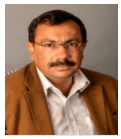 Tarek Kamel is an Egyptian expert in global Internet governance issues. He is considered the father of the Internet in Egypt.
Tarek Kamel is an Egyptian expert in global Internet governance issues. He is considered the father of the Internet in Egypt.
In August 2012 ICANN appointed Tarek Kamel to serve as a Senior Advisor to its President. And by that he is the first one from the developing countries to take one of the leading roles at ICANNs senior management. Prior to joining ICANN, he was a board member of the National Telecom Regulatory Authority of Egypt from April 2011- July 2012.
Kamel served as the Minister of Communication and Information Technology from July 2004 to February 2011, where he was responsible for the reform of the ICT sector and the development of telecom services and the Internet industry in Egypt. Kamel joined the Ministry of Communications and Information Technology since its formation in October 1999, where he had been appointed Senior Advisor to the Minister following his pioneering efforts in ICT. He was board member of Telecom Egypt from 2000 to 2004 and a board member of Egypts Private Public Technology Development Fund (TDF) to support start ups and incubators in ICT from 2002 to 2004.
Senior advisor to the president of ICANN
Randy Bush
 Randy Bush is founder of the Network Startup Resource Center (NSRC), an NSF-supported pro bono effort to help develop and deploy networking technology in projects throughout the world. The NSRC started as a volunteer effort to support networking in southern Africa in 1988, when Bush designed, taught about, and helped deploy a multi-country network using varying technologies. The NSRC works with indigenous network engineers and operators who develop and maintain Internet infrastructure in their respective countries and regions by providing technical information, engineering assistance, training, donation of books, equipment and other resources.
Randy Bush is founder of the Network Startup Resource Center (NSRC), an NSF-supported pro bono effort to help develop and deploy networking technology in projects throughout the world. The NSRC started as a volunteer effort to support networking in southern Africa in 1988, when Bush designed, taught about, and helped deploy a multi-country network using varying technologies. The NSRC works with indigenous network engineers and operators who develop and maintain Internet infrastructure in their respective countries and regions by providing technical information, engineering assistance, training, donation of books, equipment and other resources.
Bush works as a Research Fellow and Network Operator at Internet Initiative Japan Research, Japan’s first commercial ISP. He was a founding engineer of Verio, and co-founded the Non-Commercial Domain Name Holders’ Constituency within ICANN’s DNSO. He is also a founding Board of Trustee member of the American Registry of Internet Numbers (ARIN).
The NSRC has been instrumental in the creation and expansion of the Internet and technology on the African continent.
Source: Internet Hall of Fame
Pierre Dandjinou
 Pierre Dandjinou is currently the ICANN Vice President for Stakeholder Engagement for Africa. For 12 years, he has been a Staff member of the United Nations Development Programme (UNDP), as a Regional Policy Advisor on ICT for Development and e-Governance for Africa. He has assisted close to 15 African countries in defining their ICT strategies and has contributed in mainstreaming ICT in UNDP’s overall global framework for development.
Pierre Dandjinou is currently the ICANN Vice President for Stakeholder Engagement for Africa. For 12 years, he has been a Staff member of the United Nations Development Programme (UNDP), as a Regional Policy Advisor on ICT for Development and e-Governance for Africa. He has assisted close to 15 African countries in defining their ICT strategies and has contributed in mainstreaming ICT in UNDP’s overall global framework for development.
Pierre further on assisted African countries in developing and implementing their national e-governance related projects, namely as relate to public administration reform and modernization (e-administration), institutional capacity development (e-Parliament) and provision of public services to citizens (e-services). Pierre is one of the initiators of the Africa e-Governance Academy (AfeGA), being incepted in Accra, Ghana.
On the African scene, Pierre is known as one of the pioneer of Internet connectivity, having participated in many initiatives which aimed at increasing access to ICTs and its subsequent services to the marginalized portions of the society. He organized the first African conference on Internet Governance in Cotonou in 1998 and coordinated the Internet initiative for Africa of the UNDP, which helped provide the first national Internet gateway in many Africa countries. Pierre has been among the first representatives of Africa at ICANN, as an active member of different specialized committees; he chaired the Board of Directors of AfriNIC, the Africa Internet registry from 2004 to 2008.
In November 2012 he was appointed as ICANN’s Stakeholder Engagement Vice President for Africa.
Nii Quaynor
 Dr. Nii Narku Quaynor is a former ICANN Board Director, a Member of the Internet Governance Forum Advisory Group at the United Nations, and Chairman of the Board of Directors at National Information Technology Agency.
Dr. Nii Narku Quaynor is a former ICANN Board Director, a Member of the Internet Governance Forum Advisory Group at the United Nations, and Chairman of the Board of Directors at National Information Technology Agency.
Quaynor is also a Member of the Internet Society of Ghana, Convener of the African Network Operators Group, was the Founding Chairman of AfriNIC, and was previously an Executive Chairman at AfTLD. He had also served as the Chairman of Network Computer Systems.
Dr. Quaynor is the recipient of John Postel Award.
Mike Lawrie
 Mike Lawrie, a man at the very core of the internet in South Africa, went to school at St Andrew’s College, graduated from Rhodes University and led the Rhodes team that established the first internet networking system in South Africa in 1988.
Mike Lawrie, a man at the very core of the internet in South Africa, went to school at St Andrew’s College, graduated from Rhodes University and led the Rhodes team that established the first internet networking system in South Africa in 1988.
He also administered the ZA domain namespace from 1994 until 2002.
Source: TechCentral
Pierre Ouedraogo
 Pierre Ouedraogo is the Director of Digital Francophonie at Organisation Internationale de la Francophonie (OIF) based in Paris, France. Over the years, he has established networks of IT experts to coordinate African efforts to develop IT and use it as a tool for development. Mr. Ouedraogo initiated many IT technical workshops in Africa and is a founding member of numerous African regional organizations, including AfriNIC (the African Internet Registry for IP addresses); AfTLD (African Internet Top Level Domain Names Association); AFNOG (African network operators group); AfCERT (African CERT network), and AfrICANN (African network of participants to the ICANN process).
Pierre Ouedraogo is the Director of Digital Francophonie at Organisation Internationale de la Francophonie (OIF) based in Paris, France. Over the years, he has established networks of IT experts to coordinate African efforts to develop IT and use it as a tool for development. Mr. Ouedraogo initiated many IT technical workshops in Africa and is a founding member of numerous African regional organizations, including AfriNIC (the African Internet Registry for IP addresses); AfTLD (African Internet Top Level Domain Names Association); AFNOG (African network operators group); AfCERT (African CERT network), and AfrICANN (African network of participants to the ICANN process).
“Pierre Ouedraogo is a highly-regarded technical leader in Africa, and he has been instrumental in bringing the Internet to Burkina Faso as well as other French-speaking African countries,” said Lynn St. Amour, President and Chief Executive Officer of the Internet Society. “His commitment to the expansion of the Internet and encouragement of young engineers to help them build their skills through training workshops has had a profound impact on the growth of the Internet across Africa.”
Pierre is the recipient of John Postel Award.
Charles Musisi
 A graduate of Electrical Engineering, and now Managing Director and owner of the Uganda IT firm Infinity Computers & Communications Company LTD (which previously traded under the name Computer Frontiers International LTD).
A graduate of Electrical Engineering, and now Managing Director and owner of the Uganda IT firm Infinity Computers & Communications Company LTD (which previously traded under the name Computer Frontiers International LTD).
Charles Musisi pioneered the use of electronic networks for communication way back in the 1990s in a number of countries on the African sub-continent, and later went on to setup some of the early Internet services in the East Africa sub-region in the late 1990s.
He has provided technology leadership for over 15 years now and has in the process created a successful business whose core services include VoIP telephony services and Call Center solutions, a vibrant IT Helpdesk and call center.
Charles has recruited and trained over 100 top IT professionals now successful in their own right working in business, telecom companies and the public sector.
Charles Musisi is manager for .ug, the Top Level Domain on the Internet for Uganda; has worked as project manager for many IT projects that include an IDRC funded activity that created the very first e-mail and Internet service in Uganda, Makarere University’s USAID funded first campus wide network; large application development projects for COMESA, UNEP, UNDP, The World Bank and the EAC.
Charles Musisi is a true technology leader who for the past fifteen (15) years served in many roles on technology bodies such as AfriNIC, ICANN and AfNOG.
George Sadowsky
 George Sadowsky is an American computer scientist who has worked in a variety of positions related to the international promotion of the Internet. He is a current Member of the Board of Directors of ICANN, elected in 2009 and serving until 2015, and is also currently the head of the CEO Search Committee. He served on ICANN‘s NomCom from 2005-2007, and was an adviser to NomCom‘s chair in 2008. He has also been heavily involved with ISOC. George Sadowsky received his Ph.D. in Economics from Yale, he later studied and taught mathematics at Harvard.
George Sadowsky is an American computer scientist who has worked in a variety of positions related to the international promotion of the Internet. He is a current Member of the Board of Directors of ICANN, elected in 2009 and serving until 2015, and is also currently the head of the CEO Search Committee. He served on ICANN‘s NomCom from 2005-2007, and was an adviser to NomCom‘s chair in 2008. He has also been heavily involved with ISOC. George Sadowsky received his Ph.D. in Economics from Yale, he later studied and taught mathematics at Harvard.
At the United Nations, he supported technical assistance projects and has worked in more than 50 developing countries. He has been a consultant to the U.S. Treasury, UNDP, USAID, W3C, the Swiss Government, and World Bank. He has served on Boards of AppliedTheory Corporation, educational networks CREN and NYSERNet, and ISOC where he directed its Developing Country Network Training Workshops. More recently, he was Executive Director of GIPI, the Global Internet Policy Initiative. He has written and lectured extensively on ICT and Internet development.
Source: ICANNWiki
Lane Smith
Lane Smith has nineteen years of international development experience with the US Government. He has served as the Coordinator of the Leland Initiative since its inception in 1996; this is the USAID Bureau for Africa effort to bring the benefits of the information revolution to the people of Africa, through connection to the Internet and other GII technologies. He has worked extensively to embed modern information and communication approaches into White House initiatives, including the following: the Education for Development and Democracy Initiative (EDDI), the Africa Trade and Investment Policy Project (ATRIP) and the EAGER economic research project. In addition, Lane has served as a principal informant for broader US Government approaches to bridge the Digital Divide, including the Internet for Economic Development Initiative.
Source: ZoomInfo
Nancy Hafkin
 Among the first to enter the field of electronic communications in Africa, Nancy Hafkin has been
a pioneer and innovator in the area of networking, development information, and electronic communications, working primarily with the UN Economic Commission for Africa (UNECA) in Addis Ababa. Dr. Hafkin’s work on African networking helped build the continent’s ICT framework through partnerships with governmental, nongovernmental, and development institutions.
Among the first to enter the field of electronic communications in Africa, Nancy Hafkin has been
a pioneer and innovator in the area of networking, development information, and electronic communications, working primarily with the UN Economic Commission for Africa (UNECA) in Addis Ababa. Dr. Hafkin’s work on African networking helped build the continent’s ICT framework through partnerships with governmental, nongovernmental, and development institutions.
At UNECA, she served as coordinator for UNECA’s African Information Society Initiative and team leader for promoting information and communication technologies for development. Dr. Hafkin also served as chief of the Pan African Development Information System and chief of research and publications at the African Training and Research Center for Women. She played a central role in facilitating the Association for Progressive Communications’ (APC) work to enable email connectivity in more than 10 countries during the early 1990s before full Internet connectivity became a reality in most of Africa.
Hafkin has been instrumental in helping raise global awareness of issues related to gender and information technology and development. In 2006 she co-edited “Cinderella or Cyberella: Empowering Women in the Knowledge Society,” a collection of essays discussing ways that information and communications technologies empower women.
Most recently she contributed the chapter on gender issues to the World Web Foundation volume edited by George Sadowsky, “Accelerating Development Using the Web: Empowering Poor and Marginalized Populations. In 2012, Nancy Hafkin’s was inducted to the Internet Hall of Fame for her contributions to the building of the open Internet.
Source: Internet Hall of Fame
Dr Lishan Adam
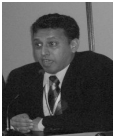 Dr. Adam is an independent consultant and researcher specializing in ICT applications in development, and ICT policies and regulation with special focus on developing countries. In the period of 1989-2002, he worked at the United Nations Economic Commission for Africa in Addis Ababa as a programmer, trainer, network manager and regional advisor.
Dr. Adam is an independent consultant and researcher specializing in ICT applications in development, and ICT policies and regulation with special focus on developing countries. In the period of 1989-2002, he worked at the United Nations Economic Commission for Africa in Addis Ababa as a programmer, trainer, network manager and regional advisor.
He was a Hewlett Fellow of Information Technology at the Center of International Development and Conflict Management of the University of Maryland from 2003-2004.
Dr. Adam served as a visiting Associate Professor at the Graduate Public Development and Management Department at the University of Witswatersrand and at the Center of Knowledge Dynamics and Decision Making and Department of Information Science of the University of Stellenbosch, South Africa. He is a facilitator of the Research ICT Africa Network (RIA) in eastern Africa
Source: Internet Hall of Fame
Alan Barrett
 Alan Barrett holds an M.Sc.Eng. from the University of Natal, Durban (now UKZN). In the late 1980s and early 1990s he was a lecturer in the Department of Electronic Engineering at UND.
Alan Barrett holds an M.Sc.Eng. from the University of Natal, Durban (now UKZN). In the late 1980s and early 1990s he was a lecturer in the Department of Electronic Engineering at UND.
He was a co-founder of the first commercial ISP in South Africa, TICSA, which later became UUNET Internet Africa (now Verizon).
He has been involved with several Internet-related organisations, including ISOC, AfNOG, and AfriNIC.
Source: TechCentral
Mike Jansen
 Mike Jensen is an independent consultant with experience in over 40 countries in Africa assisting in the establishment of information and communications systems over the last 15 years.
Mike Jensen is an independent consultant with experience in over 40 countries in Africa assisting in the establishment of information and communications systems over the last 15 years.
A South African based Johannesburg, he sent his first email 20 years ago while studying rural planning and development in Canada.
He subsequently returned to South Africa to work as a journalist on the Rand Daily Mail in Johannesburg in 1983. When the paper closed he moved back to Canada and in 1986 he co-founded the country’s national Internet service for NGOs, called coincidentally, The Web.
After helping to set up a similar ISP in Australia in 1989, he returned to South Africa where he works with international development agencies, NGOs and governments assisting them in the formulation, management and evaluation of their Internet projects.
In 2008 Mike established a base in Itacare, Bahia, Brazil where he spends an increasing amount of time working on global projects.
Mike is a board member of the South African ISP for NGOs – SangoNet, a member of the international advisory board of IICD, and was a member of the African Conference of Ministers High Level Working Group which developed the African Information Society Initiative (AISI) in 1996.
Source: www.suvabay.com
Abdelaziz Hilali
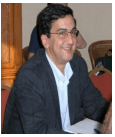 Dr. Abdelaziz Hilali is one of the principal founding members of the ISOC Morocco, the first ISOC chartered chapter in Africa.
Dr. Abdelaziz Hilali is one of the principal founding members of the ISOC Morocco, the first ISOC chartered chapter in Africa.
Dr. Abdelaziz Hilali is a Professor at the Moroccan Telecommunications graduate institution (INPT). He graduated from the Joseph Fourier University of Grenoble, where he earned a PhD in Applied Mathematics and Computer Science in 1987.
Following his graduation, he has published a number of scientific papers and given a substantial number of oral presentations at international meetings.
Dr. Hilali has been a member of the ministerial commission in charge of the launching of the program of the master’s in Telecommunications and ICT engineering. He was in charge of student academic affairs, and a deputy director of the Master training programs and he is currently director of Corporate Relations within the same institution.
He is a Founder of the Moroccan IPv6Task Force. He is currently, member of the Multistakeholder Advisory Committee (MAG), Secretary general of the African Regional At-Large Organization (AFRALO), president elect of the Mediterranean Federation of Internet Associations (Tunis 2007) and the president of ISOC Morocco.
Najat Rochdi
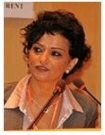 Najat Rochdi is Moroccan. She holds a Doctorate in Mathematics and is Engineer in Computer Sciences.
Najat Rochdi is Moroccan. She holds a Doctorate in Mathematics and is Engineer in Computer Sciences.
Najat is currently the Deputy Director in charge of Policy, Communication and Operation at the UNDP headquarter in Geneva. From October 2003 to May 2008 she was the Regional Director of Information and Communication Technology for Development in Arab Region (ICTDAR), in UNDP.
She initiated and implemented several regional initiatives in 18 countries of the Arab Region. Najat worked very closely and got funding from EU, European Commission, AECI in Spain, etc. She worked extensively in Egypt, Morocco, Palestine, Lebanon, Jordan, Yemen, UAE, Tunisia and Syria among others. ICTDAR had 4 flagship regional initiatives: Youth empowerment, women empowerment, ICT for peace and dialogue of civilisation (one of the most successful initiatives involving several countries from the Mediterranean region including Cyprus, Portugal and Turkey) and SME support and job creation.
She was the Deputy Minister for the Small and Medium Enterprise’s. Prior to that, Najat was Advisor to the Secretary of State in charge of IT in the Prime Minister Office and General Director of Cooperation and IT Development.
She was also the national Focal Point for the European Mediterranean program for the Information Society in the Region and a member of the Euro Mediterranean process Group. Najat started as a Professor at the University and at the College Royal in Rabat. She was published in several research magazines and contributed as a co-author to several books. Najat was a member of the high level panel of ICT experts set up by the former UN Secretary General, Mr Kofi Annan, to advice on ICT policy for economic and social development for the ECOSOC and General Assembly. She is also a member of several think tank groups and tasks forces in Europe, Africa and Middle East.
Source: ASREN
Paul Nyirenda
 Paulos Nyirenda was born and lives in Malawi. He is the manager of the Malawi .mw ccTLD. He is the national Coordinator of Malawi SDNP. He is an academic member of staff in the Physics Department of the University of Malawi.
Paulos Nyirenda was born and lives in Malawi. He is the manager of the Malawi .mw ccTLD. He is the national Coordinator of Malawi SDNP. He is an academic member of staff in the Physics Department of the University of Malawi.
He was involved in the formation of the ccNSO, was a member of the original ccNSO launching group. He is currently a ccNSO Council member representing the Africa region. He holds a PhD in Electrical Engineering from UNSW and has produced a number of publications. Dr Nyirenda holds and has held many other important positions in society including being the current chairperson of the Malawi Internet Service Providers Association, a trustee of the Malawi Switch Centre, a director and president of the Africa Top Level Domain Organization, an elected co-chair of AFRINIC Policy Development Working Group.
Farouk Famoun
 Farouk Kamoun, PhD. (born 1946) is a Tunisian computer scientist and professor of computer science at École nationale des sciences de l’informatique (ENSI, the Computer Science School of The University of Manouba, Tunisia).
Farouk Kamoun, PhD. (born 1946) is a Tunisian computer scientist and professor of computer science at École nationale des sciences de l’informatique (ENSI, the Computer Science School of The University of Manouba, Tunisia).
He contributed in the late 1970s to significant research in the field of computer networking in relation with the first ARPANET network.
He is also one of the pioneers of the development of the Internet in Tunisia in the early 1990s.
Source: Wikipedia
Mouhamet Diop
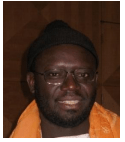 Mouhamet Diop graduated in 1993, from ESSEC (Ecole Superieure des Sciences Economiques et Sociales) at Cergy in FRANCE, with an M.B.A of Finances.
Mouhamet Diop graduated in 1993, from ESSEC (Ecole Superieure des Sciences Economiques et Sociales) at Cergy in FRANCE, with an M.B.A of Finances.
Mouhamet Diop also graduated in 1992, from French Graduate degree in Telecommunications Engineering from ENST de Bretagne Computer Science and Networking FRANCE, and obtained at the University of Rennes in Parallelism and Distributed Systems », A Diplôme d’Etudes Approfondies (corresponding to a Preliminary Doctorate Certificate).
Mouhamet Diop also graduated in 1990 from ESMT de Dakar, a Telecommunication Engineering degree with highest honours, after a degree (French Bachelor of Science) in Physics and Chemistry, obtained at the University Cheikh Anta Diop de Dakar.
Mouhamet Diop has set up the Internet Project in 1994 in Senegal, within the national telecom company and main ISP, and in 1997, he built the most famous national IP-based network in Senegal. He served as the Data Network Manager for Sonatel for two years.
From 1995 to 1999, he managed the Internet infostructure in Senegal and he set up the second LIR (Local Internet Registry) in West Africa, SONATEL, after the Burkina Faso. In 2000, he set up his own company called NEXT SA and is involved in commercial internet services.
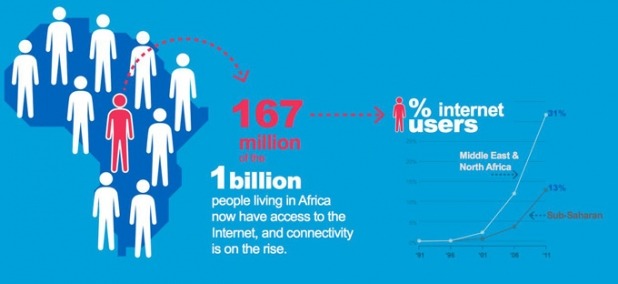
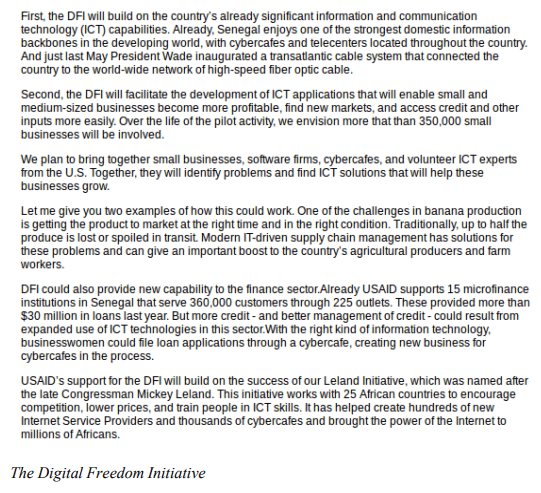
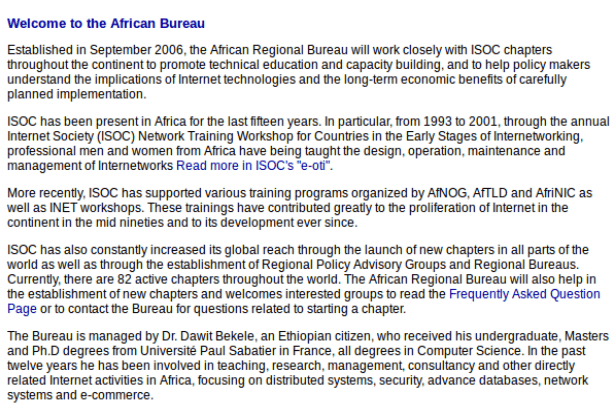
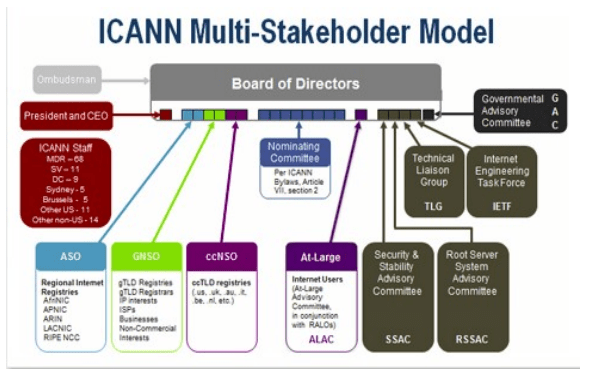
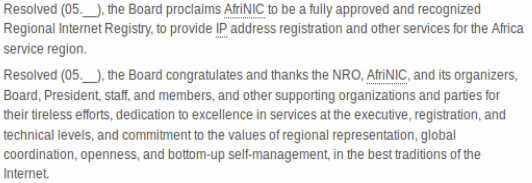
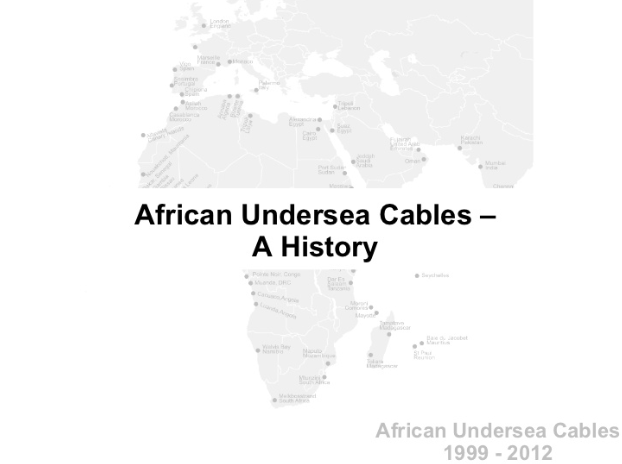
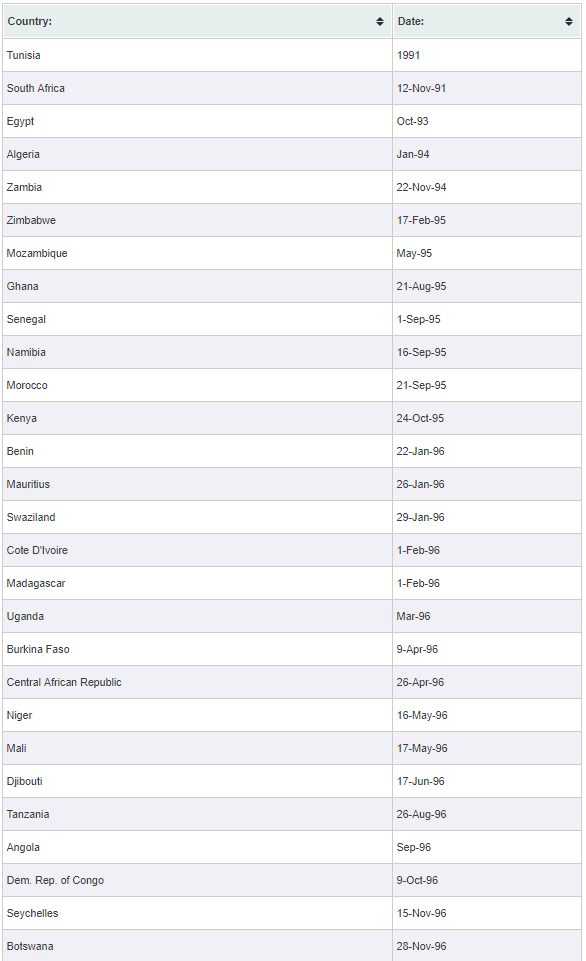
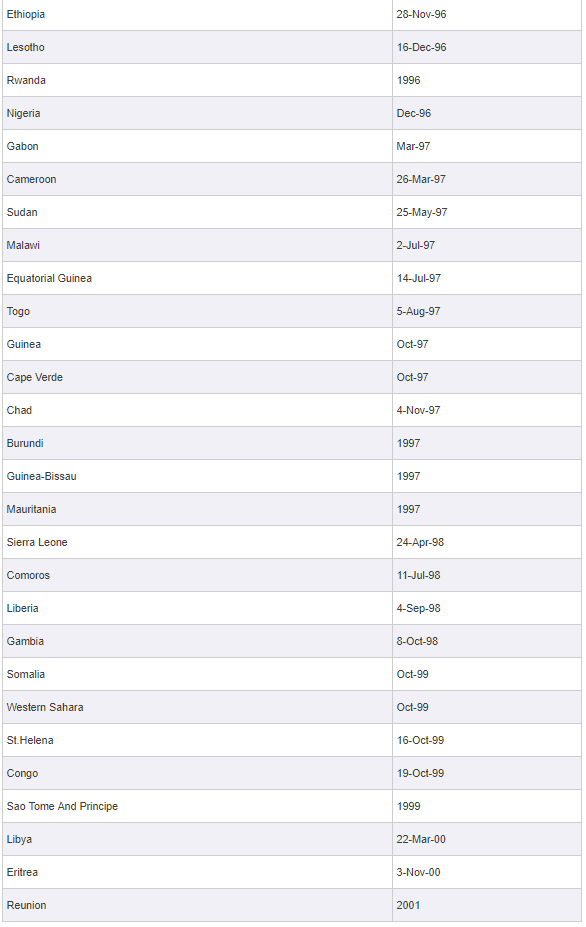
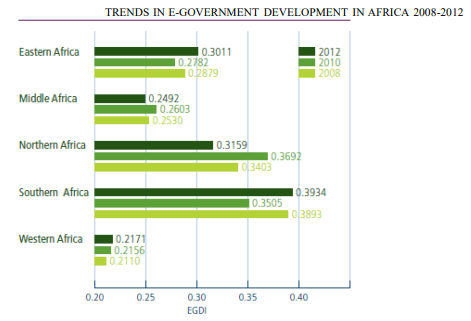
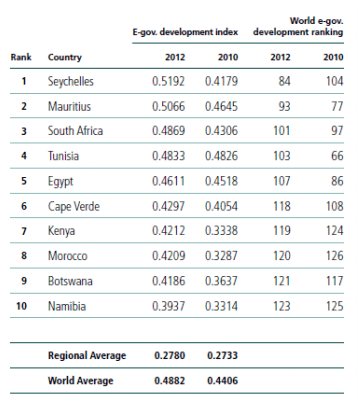
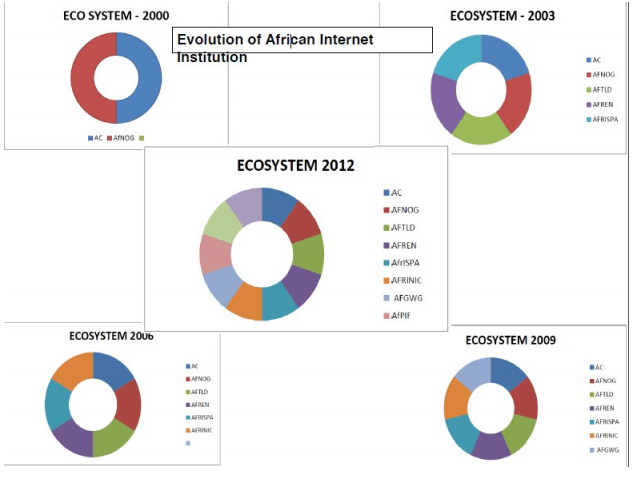
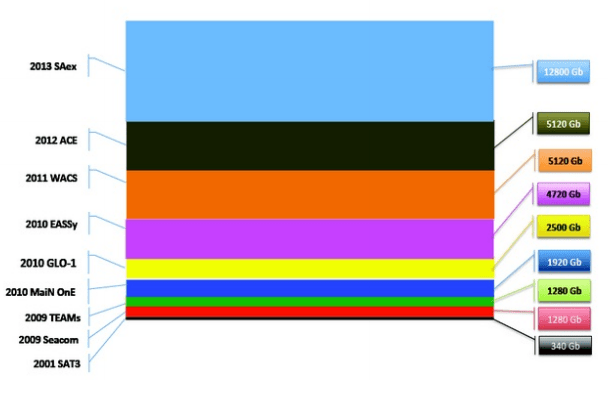
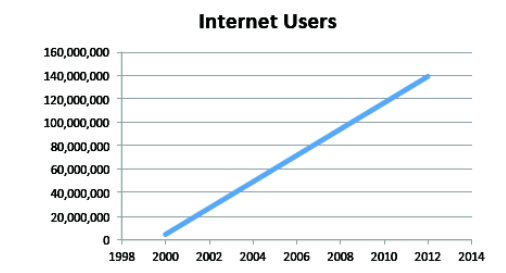

 Tarek Kamel is an Egyptian expert in global Internet governance issues. He is considered the father of the Internet in Egypt.
Tarek Kamel is an Egyptian expert in global Internet governance issues. He is considered the father of the Internet in Egypt. Randy Bush is founder of the
Randy Bush is founder of the  Pierre Dandjinou is currently the ICANN Vice President for Stakeholder Engagement for Africa. For 12 years, he has been a Staff member of the United Nations Development Programme (UNDP), as a Regional Policy Advisor on ICT for Development and e-Governance for Africa. He has assisted close to 15 African countries in defining their ICT strategies and has contributed in mainstreaming ICT in UNDP’s overall global framework for development.
Pierre Dandjinou is currently the ICANN Vice President for Stakeholder Engagement for Africa. For 12 years, he has been a Staff member of the United Nations Development Programme (UNDP), as a Regional Policy Advisor on ICT for Development and e-Governance for Africa. He has assisted close to 15 African countries in defining their ICT strategies and has contributed in mainstreaming ICT in UNDP’s overall global framework for development. Dr. Nii Narku Quaynor is a former ICANN Board Director, a Member of the Internet Governance Forum Advisory Group at the United Nations, and Chairman of the Board of Directors at National Information Technology Agency.
Dr. Nii Narku Quaynor is a former ICANN Board Director, a Member of the Internet Governance Forum Advisory Group at the United Nations, and Chairman of the Board of Directors at National Information Technology Agency. Mike Lawrie, a man at the very core of the internet in South Africa, went to school at St Andrew’s College, graduated from Rhodes University and led the Rhodes team that established the first internet networking system in South Africa in 1988.
Mike Lawrie, a man at the very core of the internet in South Africa, went to school at St Andrew’s College, graduated from Rhodes University and led the Rhodes team that established the first internet networking system in South Africa in 1988. Pierre Ouedraogo is the Director of Digital Francophonie at Organisation Internationale de la Francophonie (OIF) based in Paris, France. Over the years, he has established networks of IT experts to coordinate African efforts to develop IT and use it as a tool for development. Mr. Ouedraogo initiated many IT technical workshops in Africa and is a founding member of numerous African regional organizations, including AfriNIC (the African Internet Registry for IP addresses); AfTLD (African Internet Top Level Domain Names Association); AFNOG (African network operators group); AfCERT (African CERT network), and AfrICANN (African network of participants to the ICANN process).
Pierre Ouedraogo is the Director of Digital Francophonie at Organisation Internationale de la Francophonie (OIF) based in Paris, France. Over the years, he has established networks of IT experts to coordinate African efforts to develop IT and use it as a tool for development. Mr. Ouedraogo initiated many IT technical workshops in Africa and is a founding member of numerous African regional organizations, including AfriNIC (the African Internet Registry for IP addresses); AfTLD (African Internet Top Level Domain Names Association); AFNOG (African network operators group); AfCERT (African CERT network), and AfrICANN (African network of participants to the ICANN process). A graduate of Electrical Engineering, and now Managing Director and owner of the Uganda IT firm Infinity Computers & Communications Company LTD (which previously traded under the name Computer Frontiers International LTD).
A graduate of Electrical Engineering, and now Managing Director and owner of the Uganda IT firm Infinity Computers & Communications Company LTD (which previously traded under the name Computer Frontiers International LTD). George Sadowsky is an American computer scientist who has worked in a variety of positions related to the international promotion of the Internet. He is a current Member of the Board of Directors of
George Sadowsky is an American computer scientist who has worked in a variety of positions related to the international promotion of the Internet. He is a current Member of the Board of Directors of  Among the first to enter the field of electronic communications in Africa, Nancy Hafkin has been
a pioneer and innovator in the area of networking, development information, and electronic communications, working primarily with the UN Economic Commission for Africa (UNECA) in Addis Ababa. Dr. Hafkin’s work on African networking helped build the continent’s ICT framework through partnerships with governmental, nongovernmental, and development institutions.
Among the first to enter the field of electronic communications in Africa, Nancy Hafkin has been
a pioneer and innovator in the area of networking, development information, and electronic communications, working primarily with the UN Economic Commission for Africa (UNECA) in Addis Ababa. Dr. Hafkin’s work on African networking helped build the continent’s ICT framework through partnerships with governmental, nongovernmental, and development institutions. Dr. Adam is an independent consultant and researcher specializing in ICT applications in development, and ICT policies and regulation with special focus on developing countries. In the period of 1989-2002, he worked at the United Nations Economic Commission for Africa in Addis Ababa as a programmer, trainer, network manager and regional advisor.
Dr. Adam is an independent consultant and researcher specializing in ICT applications in development, and ICT policies and regulation with special focus on developing countries. In the period of 1989-2002, he worked at the United Nations Economic Commission for Africa in Addis Ababa as a programmer, trainer, network manager and regional advisor. Alan Barrett holds an M.Sc.Eng. from the University of Natal, Durban (now UKZN). In the late 1980s and early 1990s he was a lecturer in the Department of Electronic Engineering at UND.
Alan Barrett holds an M.Sc.Eng. from the University of Natal, Durban (now UKZN). In the late 1980s and early 1990s he was a lecturer in the Department of Electronic Engineering at UND. Mike Jensen is an independent consultant with experience in over 40 countries in Africa assisting in the establishment of information and communications systems over the last 15 years.
Mike Jensen is an independent consultant with experience in over 40 countries in Africa assisting in the establishment of information and communications systems over the last 15 years. Dr. Abdelaziz Hilali is one of the principal founding members of the
Dr. Abdelaziz Hilali is one of the principal founding members of the  Najat Rochdi is Moroccan. She holds a Doctorate in Mathematics and is Engineer in Computer Sciences.
Najat Rochdi is Moroccan. She holds a Doctorate in Mathematics and is Engineer in Computer Sciences. Paulos Nyirenda was born and lives in Malawi. He is the manager of the Malawi .mw ccTLD. He is the national Coordinator of Malawi SDNP. He is an academic member of staff in the Physics Department of the University of Malawi.
Paulos Nyirenda was born and lives in Malawi. He is the manager of the Malawi .mw ccTLD. He is the national Coordinator of Malawi SDNP. He is an academic member of staff in the Physics Department of the University of Malawi. Farouk Kamoun, PhD. (born 1946) is a Tunisian computer scientist and professor of computer science at École nationale des sciences de l’informatique (ENSI, the Computer Science School of The University of Manouba, Tunisia).
Farouk Kamoun, PhD. (born 1946) is a Tunisian computer scientist and professor of computer science at École nationale des sciences de l’informatique (ENSI, the Computer Science School of The University of Manouba, Tunisia). Mouhamet Diop graduated in 1993, from ESSEC (Ecole Superieure des Sciences Economiques et Sociales) at Cergy in FRANCE, with an M.B.A of Finances.
Mouhamet Diop graduated in 1993, from ESSEC (Ecole Superieure des Sciences Economiques et Sociales) at Cergy in FRANCE, with an M.B.A of Finances.